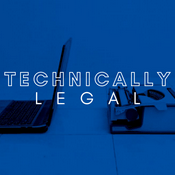One of the most listened to episodes in 2025 featured a conversation with Andrea Muttoni, President of Story Protocol. The discussion explores how blockchain technology is being used as a foundational infrastructure for intellectual property (IP), aiming to simplify and modernize the process of registration, licensing, and monetization for creators and IP owners. Muttoni details his journey from a bedroom music producer to a product manager at Amazon and eventually to a leader in the blockchain industry, driven by a passion for the intersection of technology and creativity.
The conversation delves into the core problems Story Protocol aims to solve, particularly the complexities of copyright, fair use, and attribution in the age of AI-generated content. Muttoni introduces key concepts like the Programmable IP License (PIL), a customizable and on-chain license that makes IP rights more transparent and accessible. He also provides an overview of Poseidon, a new initiative that leverages the Story Protocol to create a marketplace for IP-safe, real-world data needed to train AI models, ensuring that data creators and owners are fairly compensated.
Key Takeaways
Andrea's Background: From a bedroom hip-hop producer to a product manager at Amazon working on Kindle and Alexa, Muttoni shares his path to the world of crypto and blockchain.
What is Story Protocol?: A deep dive into Story Protocol's mission to create an open IP blockchain. It's a way to register, license, and monetize IP in a more liquid and accessible way.
The Programmable IP License (PIL): Explanation of how this universal, customizable, and on-chain license simplifies IP transactions and makes it easier for others to legally use a creator's work.
Introducing Poseidon: Details on the new platform built on the Story Protocol to address the "data gold rush" for AI. Poseidon allows for the licensing of real-world, IP-cleared data to AI companies, ensuring fair compensation for contributors.
Promoting Adoption: Discussion on how Story Protocol uses a web3 incentive model to encourage widespread adoption and create a network effect for its IP infrastructure.
Why Story Protocol?: Muttoni explains what makes their platform uniquely suited for IP rights compared to other blockchains, emphasizing that the network was built from the ground up specifically for this use case.
Things We Talk About in this Episode
Story Protocol: story.foundation
Story Protocol IP Portal: portal.story.foundation
Poseidon: psdn.ai
Story Protocol Developer Docs: docs.story.foundation
WIPO Report: A report on intangible assets, mentioned as a key indicator of the value of intellectual property.



